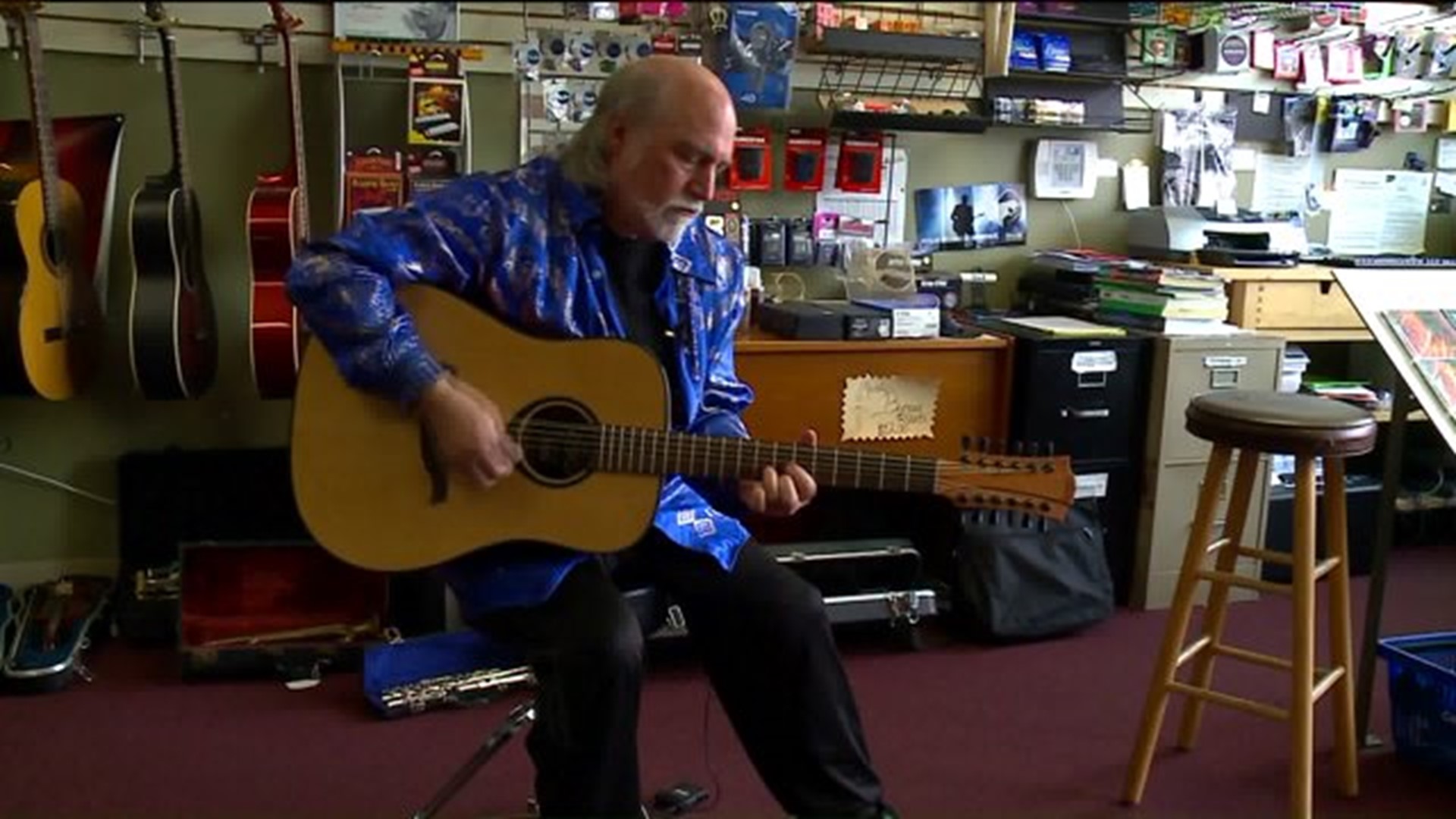BRIDGEPORT -- In the 2013-2014 fiscal year, music royalty collecting agencies brought in more than $2 billion in revenue.
Much of that money came from radio and television stations, but some came from bars and restaurants across the United States.
Owners of such establishments shell out thousands annually for music licenses, but some have gotten fined for not following the rules.
John Vazzano, who owns Vazzy’s Brick Oven in Bridgeport, Vazzy’s Cucina in Shelton and other restaurants, is just one Connecticut restaurateur slapped with a lawsuit.
“We ignored it. It’ll go away, you know, what I’m saying?” he said of letters he received from BMI, a royalty collecting organization. “It didn’t go away.”
Vazzano ended up dishing out $18,000 in a settlement with BMI.
“It was a mess,” he said. “ If they sing happy birthday, you got to do it.”
The Bridgeport man didn’t meet a requirement that every restaurant and bar pay to play copyrighted songs. It has drummed up problems all over the state, including at Portland’s Quarry Ridge, Branford’s Chowder Pot and Glastonbury’s Plan B Burger. All were penalized because a band performed a melody, a waitress ran her iPod or a DJ played a few tracks.
“Do I have to call him ahead of time and ask him, what songs are you playing? Covers? You get down to, you know, it’s crazy,” said Vazzano.
But it is not crazy. It is U.S. law, according to entertainment law attorney Alan Johnson. He pointed to section 106 of the Copyright Act. “Recognizing that there is value in a performance,” Johnson read from the legislation.
The Greenwich-based lawyer’s clients are often fledging bars and restaurants. He explains copyright law to them on a regular basis. “I know that it’s the straw that breaks the camel’s back,” Johnson said. “But you have to honor this, you have to pay the artist, the composers for their compositions that get played in your restaurant.”
Vazzano said he knew he had to pay the piper but said he didn't realize there were three royalty collecting agencies: BMI, ASCAP and SESAC. “I thought it was only ASCAP. I had never really heard of BMI,” he said. Each agency represents different songwriters and artists, and each wants payment for an annual license.
“It’s over $2,500 a year for all the licensing. Just for music,” said Vazzano. “Never mind your liquor license, your baker license, your food license.”
Grammy-award winning songwriter Bill Pere defended the practice of paying royalties. “This is how people make a living,” he said, adding that music isn't free and royalty collection is only fair. “Basically, you’re using some of their property to enhance their business,” said Pere, who runs the Connecticut Songwriter’s Association.
Pere said he knows all about discord within the food and service industry, and it worries him. “I know of many restaurants and venues that used to have live music that have just shut it down, so in the long run, instead of benefiting us by collecting royalties, it’s actually shutting down the venues and shutting down the royalties,” said Pere, who is in favor of one collective fee played by establishments to ASCAP, BMI and SESAC, rather than separate ones.
Vazzano agrees and called the individual licensing practice confusing.
He nixed live music for a juke box at his Bridgeport restaurant, so he knows what’s covered. “It’s not worth paying the fees to have it,” said Vazzano, referring to cover bands.
A bill in Congress called Fair Play, Fair Pay could further complicate the process by updating the Copyright Act from 1976.
“The upgrade is not going to withdraw rights from composers. The upgrade may install rights for master record owners,” said Johnson who explained that record companies who recorded hits and performers who performed them also want royalty compensation. Currently, money is only paid to songwriters.
Fair Play, Fair Pay seeks more fees by radio stations and could mean an increase in the fees paid by bars and restaurants.
“I wish I should sugar coat that more,” Johnson said.
Vazzano, who had to raise prices on pizza to help make up his $18,000 fine, is frustrated.
“It’s just out of control I think and the fees are enormous for what you get for it, you get nothing,” he said. “It’s worth something to the person that wrote the song. You get nothing in return. You get no assurance that you’re covered under what songs.”
Ted Kalo, executive director of musicFIRST, the organization pushing for Fair Play, Fair Pay, told FOX CT that his group would not advocate for increased fees for bars and restaurants.
"We're unequivocal on it. There's no way," said Kalo. "The members of Congress who introduced it and supporters of it are committed to keeping it that way. The bill is about whether the largest and wealthiest radio stations can pay performers for their music as satellite radio already does," Kalo said.
Kalo said musicFIRST, a coalition that represents musicians, recording artists, managers and more, has fought for royalty payments by AM/FM radio stations to performers and record companies for years.
"When you have services that exist, increasingly in your car dashboard next to each other (Pandora, Sirius XM and AM/FM radio), whether a musician gets paid shouldn't depend in which button you press," Kalo said.
FOX CT reached out to ASCAP, BMI and SESAC for specific comments about Fair Play, Fair Pay and other aspects of this story multiple times, but representatives either declined an interview or did not respond.

